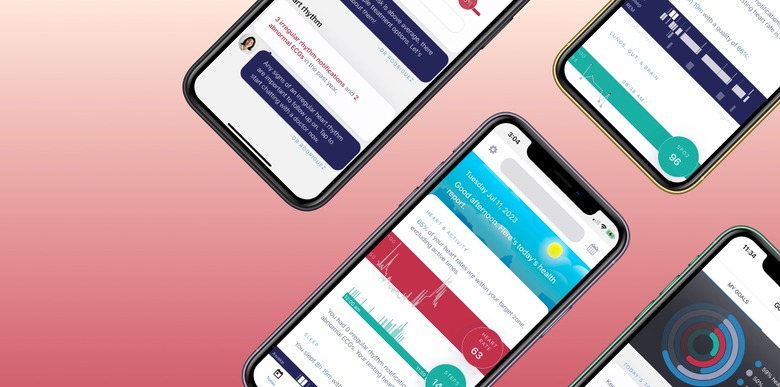Empirical Health App Brings Proactive Primary Healthcare To The Apple Watch
Cardiogram's cofounder Brandon Ballinger is back with another app. Empirical Health gives you proactive primary care using Apple Watch health sensor data. With an ambitious plan to provide affordable primary care to people everywhere, the app uses HealthKit data recorded by the Apple Watch to give insights about a person's health and how they can have a better life quality.
According to Ballinger, the Apple Watch generates 659 health data points about you daily, but only 0.89% of doctors use it for patient care. With that in mind, he built Empirical Health. Ballinger explains that the app is a "fully licensed/registered/insured medical practice, a consumer-facing app, which analyzes Apple Watch and HealthKit data with AI-enabled EMR software to help our-inhouse physicians sift through all that health data." It's a first-of-its-kind app for the Apple Watch.
"We're facing a primary care shortage. It takes patients 26 days to see a doctor; the US alone wastes $1.1T per year due to complications of chronic illness. While concierge medicine shows great outcomes, it's labor-intensive, expensive, and can't scale. Empirical Health is building great primary care that scales–using both new tech (AI, consumer health sensors, virtual modalities) and better business models (value-based care, working with your health insurance rather than separate from it)," he tells BGR.
At launch, Empirical Health offers you a health report, the ability to talk to a physician, options to create programs and set goals, and a way to learn more about the Apple Watch data the app can read.
Empirical Health: Everything you need to know
Everyone can download this iPhone app, but it doesn't mean all features are available to all users. For example, the Today tab offers a health report of your day. In this tab, you can find past health reports and your current fitness status, including heart rate, steps, and sleep quality. This is available to everyone globally.
Talk to a physician requires a $9/mo subscription, currently available in California, Florida, Hawaii, and Texas. Raquel Rodriguez, the other co-founder of Empirical Health, is the physician responsible for this feature. She's certified by the American Board of Family Medicine, and as the app grows and expands to other US states, more doctors and skilled support staff will be hired.
Ballinger says additional states are launching soon as the company completes regulatory filings.
In addition to health care aid, Apple Watch users can participate in three different programs: Long COVID/POTS, preventive heart health, and sleep apnea:
- Long COVID / POTS. Empirical Health uses the Apple Watch's heart rate sensor and workouts, as well as patient-reported data on salt/water/medication, to track the effectiveness of a comprehensive POTS treatment. The patient gets an interface that resembles a version of Activity Rings customized to their actual treatment plan (e.g., rings for medication, salt intake, water, and exercise).
- Preventive heart health. The app combines the Apple Watch's irregular rhythm notifications and ECGs with conventional lab testing (e.g., cholesterol and blood pressure) to more comprehensively evaluate heart health and build a customized treatment plan.
- Sleep apnea. Sleep apnea is frequently underdiagnosed, and sleep stages data (e.g., lack of REM sleep) is often an early warning sign. If a patient has sleep apnea symptoms, Empirical Health can prescribe an FDA-cleared at-home sleep test to confirm a diagnosis and then prescribe CPAP or other treatments if medically necessary.
More programs will be available based on users' feedback. Lastly, there's a Learn tab on which you can understand how your data is interpreted.
iPhone users can download Empirical Health on the App Store.
